
Diversity, appreciation and treating each other with respect are core values of our corporate culture at REWE Group. But how can we as individuals actively contribute to ensuring that everyone in our company feels seen, heard and safe - regardless of origin, gender, sexual orientation, religion, disability or age? Allyship is an important key to this. What it's all about - and what you can do.
„This is more for men, women are often not as assertive.“
„Young colleagues are usually still too inexperienced for important projects.“
„With your surname, it will be difficult to make a career here.“ Such comments are made quickly - sometimes casually. But they leave their mark. They sow doubt, reinforce role stereotypes and make people feel that they are not taken seriously at work.
This is exactly where Allyship comes in: It means not simply accepting such situations, but actively listening, asking questions and consciously standing in solidarity alongside those who are repeatedly confronted with prejudice or disadvantage.
It is often a great relief for those affected if they do not have to deal with such comments alone. If someone thinks along with them, supports them or simply takes a stand, it creates a sense of security and strengthens the feeling of not being alone.
Allyship is a central part of our culture, especially in a diverse organisation like REWE Group. Diversity can only grow if it is protected through respect, attention and genuine compassion.
An:e Ally recognises inequalities, stands up for others and remains open to new perspectives. It is not about moral superiority, but about the willingness to learn together and create an inclusive coexistence.
Many people want to live allyship, but are unsure how they can provide concrete support in everyday life. That's why we've put together 8 tips here that will help to make working together at REWE Group even more inclusive.
One of the most important things you can do is to listen. When people report discrimination, marginalisation or hurtful experiences, take the time to really listen - without judging or immediately expressing an opinion. Especially if something seems strange or exaggerated to you, it is worth reacting curiously rather than defensively. If you experience or observe discrimination, you can also contact your HR department in confidence at any time[JD1]
Example: Instead of saying "I'm sure it wasn't that bad", you could ask: "What would you have wished for at that moment?" or "How did you feel afterwards?" This shows respect - and a willingness to learn.
Not every form of discrimination is loud or obvious. It is often casual remarks, jokes or stereotypical statements that are hurtful - precisely because they are so commonplace. As an Ally, you can make these moments visible without coming across as lecturing.
Example: If someone says: "That's typical of a woman/man", you can intervene in a friendly way: "What exactly do you mean?" or "Have you ever experienced that differently?" Small interventions can have a big impact - they create awareness and encourage reflection.
In many groups, the same people speak over and over again - whether out of habit, status or simply because they feel more comfortable. Pay attention to who (doesn't) get a chance to speak and use your voice to invite others.
Example: You can say: "We haven't heard your opinion yet - would you like to share it?" or "I'd like to know what you think." This can be an important sign, especially for people who feel structurally less visible: You are seen and welcome here.
No one is free from prejudice - not even if you consider yourself enlightened and reflective. We are all shaped by our experiences, our environment and social structures. It is therefore important to regularly scrutinise our own perspective. This applies to language, but also to habitual patterns of thought and behaviour. If you would like to question your own perspective even more consciously, PRIMUS offers the 12-minute e-learning "Unbewusstes.Bewusst.Machen" - currently for all central and administrative employees in Retail Germany[JD2]
Example: Pay attention to your spontaneous reactions. Do you automatically think of a white, male manager when you hear the word "manager"? Are you surprised when a young woman shows technical expertise? It is worth recognising these unconscious images (unconscious bias) - and actively expanding them.
Privileges are often invisible - especially to those who have them. If you are given preferential treatment in a situation, you can use this to support others: by paying attention, by passing on speaking time, by making inequalities visible.
Example: In a round of introductions, you can make sure that everyone has the same amount of speaking time - or you can reinforce colleagues whose contribution has just been ignored: "I think that was an important point - would you like to explain it again?" In this way, you actively shift attention - without ignoring others.
Allyship does not mean staging yourself as a saviour. It's about showing solidarity - and respecting the perspective of the person affected. Ask if and how you can provide support instead of intervening without being asked.
For example: "I noticed what happened - would you like me to support you in speaking up?" Or, if someone speaks up: "I agree - thank you for saying something." Speaking up together can help to break through powerlessness.
A safe space is one in which people can express themselves without fear of devaluation, ridicule or exclusion. This includes a respectful culture of dialogue, but also structures in which openness is possible. As an Ally, you can play an active role in shaping this.
Example: Start a meeting with the question: "How are you doing today - honestly?" Or ensure clarity in conflict situations: "Let's remain respectful - every perspective counts." Even small gestures can signalise: You can be yourself here.
Allyship is not a title, but a process. It is not about flawlessness or moral superiority, but about attitude, the courage to reflect and the willingness to develop further. Mistakes will happen - the important thing is how you deal with them.
Example: If you make a mistake, you can say: "That was careless - I'm working on making it better." Also show others that development takes time - and that it's okay not to know everything as long as you're willing to learn.
Being Ally doesn't mean knowing everything or being perfect. It means actively taking responsibility for good, fair cooperation - and for a corporate culture in which everyone feels welcome and valued. Because inclusive diversity doesn't just happen by itself. It needs people who don't look away. But listen. And act.
 "For me, allyship means more than just solidarity. It is consciously standing up for others whose voices are unfortunately often ignored. Above all, allyship commits to listening, understanding and learning in order to create a space together with empathy in which diversity wins."
"For me, allyship means more than just solidarity. It is consciously standing up for others whose voices are unfortunately often ignored. Above all, allyship commits to listening, understanding and learning in order to create a space together with empathy in which diversity wins."
 "I lived in an inclusion project in Baden-Württemberg for a total of seven years as part of my job at the time - seven years with people who were considered severely disabled in very different ways. During this time, I was once asked by visitors what it was like to be the only "non-disabled" person living in such a project. A flatmate happened to be standing next to me during this conversation. Almost annoyed and full of conviction - as if she had to defend me - she said a sentence that has stayed with me to this day: "What are you asking me that for? Jochen lives with us because he's one of us. That's obvious."
"I lived in an inclusion project in Baden-Württemberg for a total of seven years as part of my job at the time - seven years with people who were considered severely disabled in very different ways. During this time, I was once asked by visitors what it was like to be the only "non-disabled" person living in such a project. A flatmate happened to be standing next to me during this conversation. Almost annoyed and full of conviction - as if she had to defend me - she said a sentence that has stayed with me to this day: "What are you asking me that for? Jochen lives with us because he's one of us. That's obvious."
 "Language creates reality. This means not only paying attention to gender-appropriate language, but also using terms and images sensitively. For example, we should consider whether a phrase is understandable or appropriate for people with a different cultural background. Or if I ask whether a female colleague is going on holiday with her partner, I automatically assume that it is a man - when it could also be a female partner. Such assumptions can exclude or hurt others. For me, allyship means that I am open to asking questions, reflecting on my own views and consciously making sure that as many people as possible feel addressed and included."
"Language creates reality. This means not only paying attention to gender-appropriate language, but also using terms and images sensitively. For example, we should consider whether a phrase is understandable or appropriate for people with a different cultural background. Or if I ask whether a female colleague is going on holiday with her partner, I automatically assume that it is a man - when it could also be a female partner. Such assumptions can exclude or hurt others. For me, allyship means that I am open to asking questions, reflecting on my own views and consciously making sure that as many people as possible feel addressed and included."


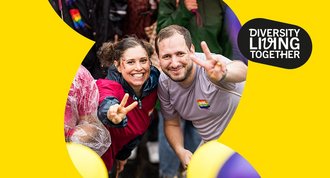
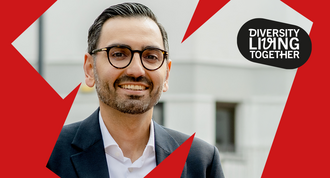


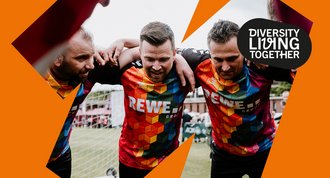
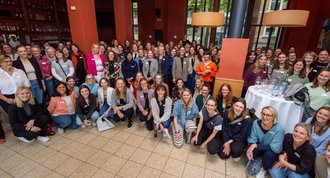



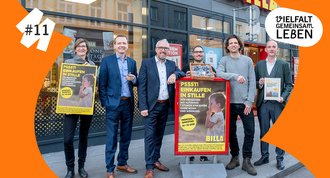
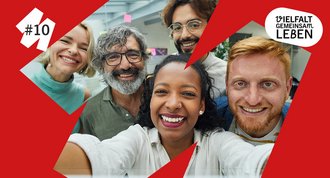
Both German and English comments appear here.
Hallo zusammen,
wäre es möglich, dass E-Learning „Unbewusstes.Bewusst.Machen“ auch für die Touristik zur Verfügung zu stellen?
LG
Rebecca